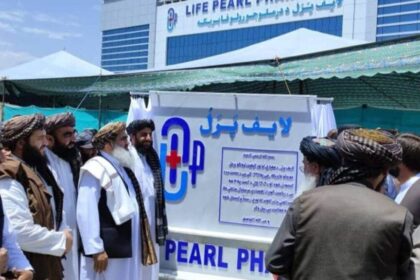RASC News Agency: Multiple national traders in western Afghanistan assert that the market for certain dried fruits, notably with neighboring countries like Iran, is thriving. Ahmad Farhad Banaee, a national trader in Herat province, conveyed to a RASC news correspondent on Tuesday, December 26th: “The majority of dried fruits traded with neighboring countries, especially Iran, encompassing Pinus gerardiana, walnuts, pistachios, and various other fruits, yield considerably higher returns for national traders compared to transactions within Afghanistan.”
He highlighted that currently, the price per kilogram of Pinus gerardiana in the markets of western Afghanistan fluctuates between 1,000 to 1,300 kabuli rupees, while the same dried fruit fetches double or more in neighboring countries. Mr. Banaee added that numerous national traders have successfully secured substantial contracts through this avenue, actively participating in the dried fruit trade.
In addition, Akbar Hashemi, a civil activist in Herat province, shared with RASC: “Regrettably, there is no demand for goods and products akin to those sold in neighboring countries within domestic markets.” Hashemi elucidated that foreign countries operate under a specific economic mechanism that has facilitated considerable growth for them. He further stated, “If saffron or dried fruits from Afghanistan were associated with one of the neighboring countries or European nations, their influence would resonate globally, establishing a prominent position for everyone.”
However, Hafeezullah Aminzada, a resident of Herat province, conveyed to RASC, “Instead of benefiting the people, the majority of fresh and dried fruits from Afghanistan end up in the possession of individuals in neighboring countries and European nations.” He underscored that with a sincere and compassionate leader, the ongoing situation would not persist across all segments of society, and complete negligence would not prevail. Reports indicate that a significant portion of Afghanistan’s dried fruits is traded with Iran, garnering substantial support for procurement from Iranian markets.






